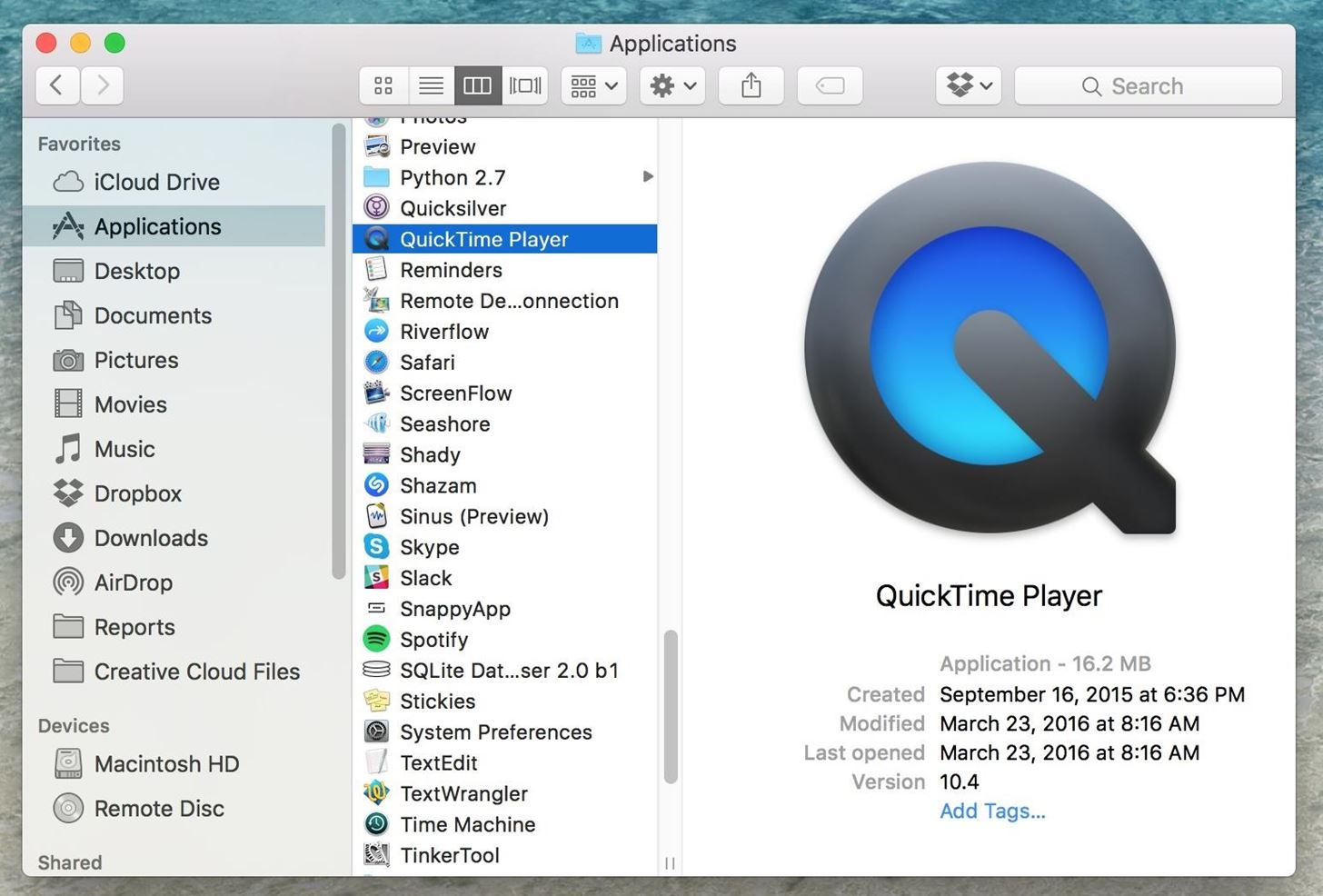- Mac Os Install Postgresql
- Postgresql For Mac Os X 10.7
- Postgresql Admin Mac Os X
- Postgresql Odbc Mac Os X
- Postgresql Mac Os X Gui
Postgresql mac-os-x enterprisedb. Share improve this question follow edited Aug 27 at 14:15. Asked Aug 25 at 17:07. Freemium Freemium. 1 2 2 bronze badges. I don't use a Mac, but I wonder if using an installer like this or this would make things. Testing your PostgreSQL installation on Mac OS X. To test the installation, simply click on Launchpad and type psql. You should get the following if you do so - Click on it and then you will get a prompt like this - You will be asked to enter the details, and the values may vary from user to user. Install PostgreSQL via Homebrew. Likely most OS X users know of Homebrew, but Homebrew is a package manager for OS X that allows you to easily install and run a massive library of applications and utilities with ease. We won’t go through the entire (albeit short) installation process of Homebrew, but if you wish to install Homebrew and use it for PostgreSQL management, check out the.
Introduction
Postgres is a powerful and free object-relational database management system. It has gained a lot of momentum since its introduction in 1995 because of its robustness and powerful features it ships with out of the box. In this article, we’ll walk through the process of installing a Postgres database on a Mac OS X machine and set it up for Ruby on Rails development.
Install Postgres Database with Homebrew
Homebrew is a popular package manager for OS X. To install Postgres with Homebrew, follow the steps below:
The first thing to do is install Homebrew if you haven’t done so already. Homebrew site has a simple command that you have to paste in your terminal to do so. Make sure to accept the command line developer tools installation if prompted.
Next, run brew install postgres to install Postgres. It might take a little while to compile and install. After compilation is done, it’ll give you some instructions to finish setting it up.
The database will be initialized during installation, so there isn’t a need to run initdb to finish installation of Postgres via Homebrew. Near the end of the installation instructions you should see mention of the command brew services.
If you don’t already have brew services installed. It may be installed withthis command:
And then you can run the following command to start Postgres as a background service:
Postgres will also restart automatically at login after you have run the command above.
Once Postgres has started, we can use brew services to stop it manually:
Or we can also use brew services to restart Postgres:
Now you should have PostgreSQL all set up.
Set Up Postgres to Work with a Rails App
Mac Os Install Postgresql
First, install the pg gem:
Apowersoft Free Online Screen Recorder. Apowersoft Free Online Screen Recorder is a free but in. Desktop Video Recorder for Mac. Recording your desktop screen is a good way to make video tutorials, demonstrations or even presentations of your new product. Most of these applications will also help.  QuickTime Player. You may or may not know that Mac’s built-in QuickTime Player can do screen. Here, you’ll learn how to how to record a video on Mac using recording apps like ScreenFlow or Voila. In ScreenFlow, click New Recording. In the Configure Recording window that opens, select the desired option: record your desktop, a webcam, a microphone, or/and system audio. Click Record to start recording and Stop Record to finish.
QuickTime Player. You may or may not know that Mac’s built-in QuickTime Player can do screen. Here, you’ll learn how to how to record a video on Mac using recording apps like ScreenFlow or Voila. In ScreenFlow, click New Recording. In the Configure Recording window that opens, select the desired option: record your desktop, a webcam, a microphone, or/and system audio. Click Record to start recording and Stop Record to finish.
Make sure you include the pg gem in your Gemfile, and run
Now, set up your config/database.yml file to point to your Posgres database.
Let’s create the development and test databases:
Now you can run pending migrations, if there are any.
It appears to me - based primarily on what I see on Stack Overflow rather than direct Mac use experience - that PostgreSQL packaging on Mac OS X is a real mess.
There are at least four widely-used competing package systems:
- An ancient version pre-installed in some Mac OS X versions
- Postgres.app from Heroku; and
- The EnterpriseDB One-Click installer for Pg
Fink and MacPorts packages also exist, but seem to have either fallen into disuse or 'just work' so I don't see breakage reports about them.
This makes supporting PostgreSQL on Mac OS X really painful. I'm not the only one who thinks so, though I don't agree with the solution proposed in that post.
Postgresql For Mac Os X 10.7
I see *daily* questions about Pg on Mac OS X on Stack Overflow's PostgreSQL tag, usually related to installs not working, conflicts and PATH problems caused by multiple installs, Mac OS X upgrades (or sometimes just minor updates) breaking things, etc.
The problems don't boil down to a simple and common set of causes. There are launchd problems, PATH problems both at runtime (wrong psql) and build time (wrong pg_config), library path problems causing the wrong libpq to be found, endless different kinds of Ruby/Rails problems with the pg gem, etc. The #1 cause seems to be updates to Mac OS X, and the #2 multiple copies of PostgreSQL on one system without proper PATHs set up.
The group of users with the most problems appears to be Ruby/Rails people having issues compiling the `Pg` gem and connecting to the right version of Pg. How much of that is simply that Rails is popular and often used by inexperienced people is hard to guess.
The second big problem appears to be people who install several different packagings of PostgreSQL on one system and get exceedingly confused. See this recent SO question for just one example. Even uninstalling is complicated, as the user has to know what they installed and how before they have a hope of uninstalling it, leading to SO questions like this. Not that Linux is much better from the uninstallation standpoint, going by all the problems new users on Ubuntu/pg_wrapper systems seem to have purging and clean-installing Pg.

Postgresql Admin Mac Os X
My question is: What can we do about all this? Can Pg proper improve this situation? Why aren't people using the EnterpriseDB installer? Or are they, and we just see problem reports from the Homebrew and Postgres.app people? Is this just 'life on Apple' where Apple might break any non-Apple software on the machine and you have to put up with it? Or are these various Pg packagings doing things wrong, things that can be fixed so that Apple updates stop breaking them?
Postgresql Odbc Mac Os X
Should we be pushing Apple to run their bundled PostgreSQL on a different port, so they don't break people's reasonable expectation to be able to install Pg and run it on port 5432?
Postgresql Mac Os X Gui
Is the answer documentation - or, more likely, will people just not read it? Do the various installers need to check for other Pg installs and warn the user?
(A related question I want to write more about soon is the problem currently faced by people who want to bundle Pg in their application installers. Many of them are using the EnterpriseDB installer in silent mode, but I think that's quite harmful as it'll leave users with a PostgreSQL install they don't know the passwords for and didn't set up themselves. If they go to install Pg themselves later problems will arise.)
